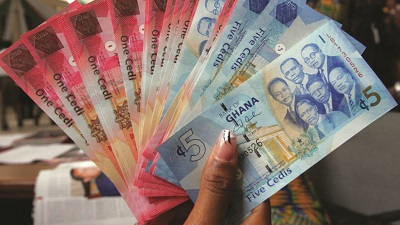
Economic and finance think tank, Center for Economics Finance and Inequality Studies CEFIS’ has projected that the cedi will end this year at GH¢ 6.45 to a dollar.
According to the think tank’s Cedi Outlook report, the projection is based on the fact that the expected rebound of the economy will not be strong enough to support the stability of the cedi for 2021.
It argued that “the immediate effect of the COVID-19 pandemic will linger beyond 2021, which will also affect the cedi’s firm stability going forward.”
It also expressed worry that the cedi’s fortune would be affected by some financial commitments that the government made in the run-up to the 2020 election, and that would be felt this year.
This according to the report would consequently put some pressure on the Ghanaian local currency.
“This excess liquidity without a corresponding output, will destroy most of the gains especially the exchange rate stability in 2020, made in the prior election year,” it said.
CEFIS in the report noted that exports would still struggle this year despite the expected opening up of economies this year.
Another area which the report believed would impact negatively on the cedi is revenue shortfall and its effect on the budget deficit.
The think tank also believed that government’s finances might come under some pressure this year, as most debts are expected to mature.
The Central Bank was commended for its Forex Forward Auction policy which has improved liquidity, and ultimately brought some relative stability to the Ghanaian local currency
“We do acknowledged that the Bank of Ghana’s forex forward sales has gone a long to help stabilize the Ghana cedi from last year, ” it said.
CEFIS in its report proposed some internal strategies that can be adopted by businesses to manage the situation.
It suggested that Invoicing in home currency would help in stabilizing the local currency.
In this strategy, it said Ghanaian business must keep invoices in Cedi adding that in such situation, the currency risk would be passed onto the customer or the supplier instead.
“Companies that may opt for this strategy should however have a strong competitive strength and switching costs for the customers and suppliers,” it said.







